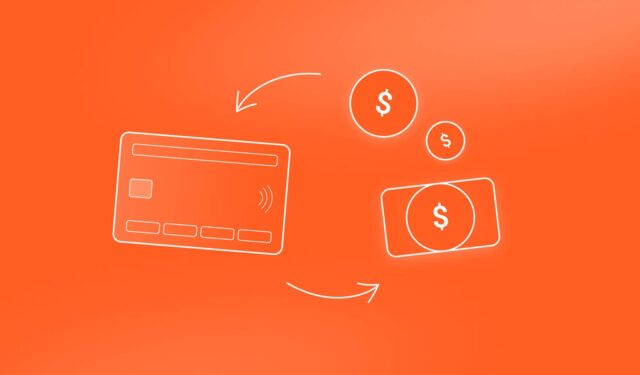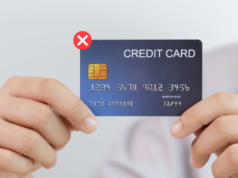
Chargeback fraud is a serious issue for businesses of all sizes. When customers dispute charges on their credit card statement, the business can lose money – even if the charge was legitimate. This blog post will discuss some of the most effective methods for protecting your business from chargeback fraud.
What is Chargeback Fraud and How it Happens
Chargeback fraud occurs when a customer contacts their credit card issuer and disputes a charge on their statement in an attempt to have the charge reversed. This fraud can be costly for businesses, as they lose the value of the original transaction and may also be charged a fee by the credit card issuer.
Additionally, if a business receives too many chargebacks, it may be placed on a blacklist by the credit card companies, making it difficult for them to process future transactions.
Below are ways in which chargebacks can hurt your business:
- Chargebacks can damage your reputation: If customers see that you’re constantly getting charged back, they may start to think that there’s something wrong with your product or service. This could lead to them taking their business elsewhere.
- Chargebacks can result in higher fees: Many payment processors will charge you additional fees if you have a high number of chargebacks. These fees can add up quickly and put a strain on your finances.
- They can cause you to lose your merchant account: If you have too many chargebacks, your payment processor may terminate your account. This could cause major problems for your business, as you would no longer be able to accept credit card payments.
- Chargebacks can lead to fines and penalties: Depending on the reason for the chargeback, you may be subject to fines or other penalties from your payment processor or bank. These fees can also add up quickly and strain your finances.
- Chargebacks can cause delays in receiving payments: If a customer disputes a charge, the payment will usually be put on hold until the dispute is resolved. This can cause significant delays in receiving payments, disrupting your cash flow.
- They can tie up valuable resources: Dealing with chargebacks can be time-consuming and resource-intensive. You may need to dedicate staff members to deal with chargebacks, which could take them away from other important tasks.
- Chargebacks can be stressful: Dealing with chargebacks can be a very stressful experience. You may have to deal with angry customers, demanding banks, and confusing paperwork. This stress can take a toll on your health and well-being.
- It can damage your business: Chargebacks can seriously negatively impact your business. They can damage your reputation, result in higher fees, cause you to lose your merchant account, lead to fines and penalties, cause delays in receiving payments, tie up valuable resources, be difficult to prevent, and be stressful.
If you’re a business owner, you must know the potential risks associated with this fraud. There are several steps businesses can take to help ensure protection against fraudulent chargebacks. Below, we describe some of them.
10 Proven Methods to Protect Your Business From Chargebacks
1) Educate Your Employees About Chargeback Fraud and How to Prevent It
Educating your employees about chargeback fraud and how to prevent it is important. Employees should be trained on how to identify and respond to fraudulent chargebacks. They should also know how to properly document chargebacks and provide supporting documentation to the credit card processor.
Educating your employees will give you peace of mind knowing that your business is protected, and you can concentrate on other important matters of improving your business.
2) Respond To Complaints or Disputes From Customers
As a business owner, it’s important to always be on the lookout for customer complaints or disputes. These issues can lead to chargebacks and other problems down the road if left unresolved. That’s why it’s crucial to respond quickly and professionally to any complaints or disputes that come up.
The sooner you address the problem, the more likely you are to be able to resolve it satisfactorily. If a customer is unhappy with a purchase, try to offer a refund or exchange if possible. If there’s a dispute about a bill or invoice, be willing to negotiate in good faith.
3) Keep Accurate Records of The Transactions of Your Customer
Keeping accurate records of all customer transactions is essential for any business. Not only does it help to prevent chargebacks, but it also allows you to track customer spending and identify any patterns or trends.
In addition, accurate records can be useful in the event of a dispute or lawsuit. Therefore, it is important to take the time to ensure that all transaction records are accurate and up-to-date. This may require investing in software or hiring additional staff, but the benefits will outweigh the costs in the long run.
4) Use a Secure Payment Gateway that Protects Your Customers’ Information
When you run an online business, it’s important to have a secure payment gateway that protects your customers’ information. You need a payment gateway that uses SSL (Secure Sockets Layer) to encrypt your customers’ information to prevent chargebacks. This ensures that their information can’t be intercepted and stolen by hackers.
You should also use a payment gateway that is PCI DSS (Payment Card Industry Data Security Standard) compliant. This means that the payment gateway meets the strict security requirements of the major credit card companies.
In addition to preventing chargebacks, a secure payment gateway can prevent other frauds like crypto frauds if you invest in cryptocurrency assets.
5) Have a Fraud Detection Software
Another way to prevent chargeback fraud is to have fraud detection software. A fraud detection software is designed to help businesses and individuals detect and prevent fraud.
There are a variety of fraud detection software applications available, each with its own sets of features and capabilities. Some fraud detection software applications are designed specifically for businesses, while others are designed for personal use.
Fraud detection software typically includes features such as creating fraud alerts, monitoring activity for fraud patterns, and generating reports. They can detect chargeback fraud, credit card fraud, identity theft, and phishing scams.
6) Offer Refunds
One of the best ways to prevent chargebacks is to offer refunds. This shows that you are willing to work with your customers and are committed to providing a positive experience.
If a customer is unhappy with a purchase, they can request a refund and have the money returned to their account. This helps prevent disputes and ensures everyone is satisfied with the transaction. Offering refunds is a simple way to show your customers that you are committed to their satisfaction.
7) Ensure that Shipping Time and costs are Transparent
You can do a few key things to prevent shipping time and cost chargebacks. First, be transparent about shipping timeframes and costs from the outset. Include this information prominently on your website and in any communications with customers.
Second, make it easy for customers to track their orders and see when they can expect delivery. Provide tracking information as soon as an order ships, and send updates if there are any delays.
Finally, if there are delays or issues with an order, reach out to the customer directly to apologize and update them on the situation.
8) Implement CVV and AVS During Checkout
Another way to prevent your business from chargebacks is by implementing CVV and AVS during checkout. CVV stands for card verification value and helps ensure that the customer uses a valid credit or debit card.
AVS, or address verification system, checks the customer’s billing address against the card issuer’s database. If the two addresses match, it indicates that the customer is who they say they are. You can PREVENT chargebacks and protect your business by requiring both CVV and AVS during checkout.
9) Verify the Details of the Customers Before Selling Them Anything
It is very important to verify the details of customers before selling them anything. If a customer does not have a valid form of identification, then consider not selling them the product.
If a customer appears to be under the influence, it is best not to sell them anything. Also, get as much information from the customer as possible such as their name, address, and phone number. This will help if there are any issues with the product or transaction so that you can contact them easily.
10) Make Promises that You Can Keep Only
Making promises is easy, but keeping them can be hard. That’s why it’s important only to make promises you know you can keep. This is especially important in a business setting, where customers rely on you to deliver your promises. If you fail to do so, you will not only damage your reputation, but you may also face chargebacks.
Chargebacks are costly and time-consuming, and they can damage your merchant account. To avoid them, only make promises that you know you can keep. This way, you’ll be able to build a strong relationship with your customers based on trust and mutual respect.
Conclusion
Chargeback fraud can be costly and damaging to your business. However, following the tips outlined in this blog post can protect yourself from fraudulent transactions and keep your bottom line healthy.










